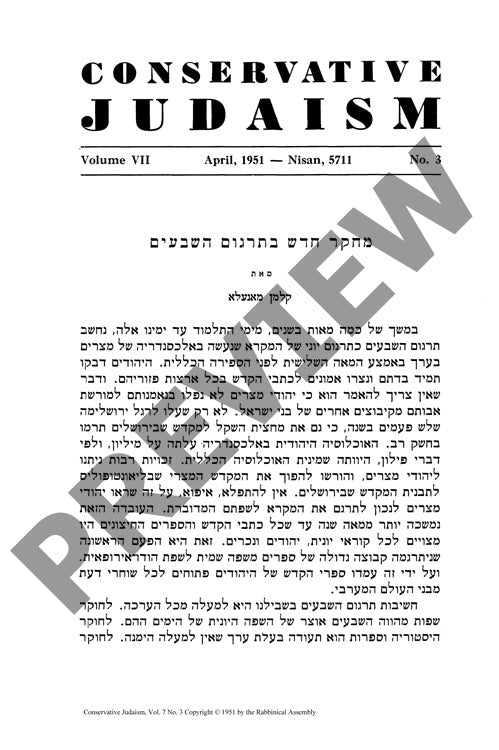Mehkar Hadash Btargum Ha Shivim
Couldn't load pickup availability
Two provocative theories challenging orthodox views of the Septuagint's origins have gained attention despite their questionable methodological foundations. Recent scholarship has attempted to upend the long-held understanding that Jewish scholars in third-century BCE Alexandria translated Hebrew scriptures into Greek, producing what we know as the Septuagint. Dr. Franz Wutz proposes that translators worked from Hebrew text already transcribed in Greek letters rather than Hebrew script - a theory that, while intriguing, lacks any supporting manuscript evidence. Even more radically, Theodore Derzhagin's "The Bible and the Greeks" argues that the Hebrew Bible actually derives from an original Greek Septuagint, identifying what he claims are Greek grammatical constructions and mistranslations within the Hebrew text. Through philological analysis, however, Derzhagin's selective use of textual examples and misinterpretation of linguistic phenomena reveal fundamental flaws in his methodology. While these revisionist approaches raise interesting questions about translation history, they ultimately fail to provide convincing evidence against the established understanding that the Septuagint represents a Greek translation of pre-existing Hebrew scriptures. Their speculative nature and lack of methodological rigor place them outside the bounds of serious academic consideration.

More Information
-
Physical Description
-
Publication Information
Published 1951
ISBN
-
Publication Credits
Kalman Manela

